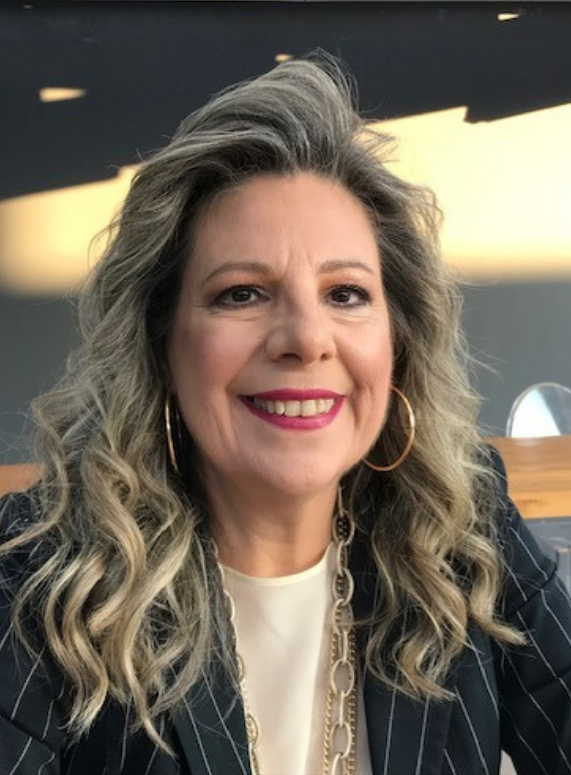For teams wanting to thrive and become positive change cells.
Systemic Team Coaching ® for organizations looking to create more productive and efficient teams through creative dialogue with the wider eco-systems they operate in and interrelate with.
Systemic Team Coaching ®
High Performing Team
Effectively meets and communicates in a way that raises morale and alignment.
Engages with all key stakeholders
In a way that provides constant learning and development for all its members.
“A high performing team effectively meets and communicates in a way that raises morale and alignment, engages with all the team’s key stakeholder groups in a way that grows performance and provides constant learning and development for all its members and the collective team.”
According to Prof. PETER HAWKINS, Leading Consultant Writer & Researcher in leadership & Systemic Team Coaching®.
Why Systemic Team Coaching?
Who can benefit from team coaching
Winning teams that need to:
Be inspired and empowered over a certain goal.
Be aligned with the vision, goals, and values of the company/organization.
Resolve conflicts and communicate effectively.
Be successfully led in difficult projects.
Overcome client rejections and low sales disappointments.
Be endorsed in times of crisis (downsizing, retirements, changes).
“Tell me, and I will forget. Show me, and I may remember. Involve me, and I will understand.”
Confucius 450 BC


Why I am a team coach.
I have dedicated my life to help people discover their hidden capabilities, their gifts to achieve happiness and add value to this world.
Moreover, I help teams to thrive and be positive influence cells for a sustainable future for their company and society as a whole, by developing a unique corporate and personal worldview and philosophy (vision and values) based on the words of wisdom of Greek philosophers.
We look at issues such as meaning, authenticity, freedom, choice, and responsibility, and how these come into play in their professional and personal lives.
I help them to build trust, to learn to listen with respect and goodwill. Thus, master their communication skills, stay positive and focus, cooperate efficiently toward a co-created vision and goals with an outstanding plan.
“I want you as a leader or as a member of a team, to walk in and be delighted at seeing your colleagues and all of the things that you’re thinking about.”

What you get from my team coaching programs
6-month Team Coaching Support Program
- Team coaching sessions over a 6-month period.
- 360 diagnostic questionnaires,
- Criteria of success,
- Step by step assignments that build on each other in order to bring them closer to their goals,
- Review mechanisms, measure results and progress, and finally implement changes straight away.
- Barbara’s support during the entire Team Coaching Program.
- Tests and templates for growth, accountability, and tracking.
- Assessment tests, questionnaires, self-reflection & evaluation forms that identify progress and commitment.
- Articles, books, and bibliography according to their aspirations or preferences.
12-month Team Coaching Support Program
- Team coaching sessions over a 12- month period.
- 360 diagnostic questionnaires,
- Criteria of success,
- Step-by-step assignments that build on each other in order to bring them closer to their goals,
- Review mechanisms, measure results, and progress, and finally implement changes straight away.
- Barbara’s support during the entire Team Coaching Program.
Tests and templates for growth, accountability, and tracking. - Assessment tests, questionnaires, self-reflection & evaluation forms that identify progress and commitment.
- Articles, books, and bibliography according to their aspirations or preferences.
“A facilitator solves problems, a team coach builds capabilities and collective learning and development!”
![]()

My 6-step methodology for team coaching
1. Commissioning: Top Management Commitment-Diagnosis 360 involving stakeholders and team members
2. Clarifying: Team Tasks – Shared values & vision
3. Co-creating: Team Relationships
4. Connecting: Stakeholder Relationships
5. Core – Learning: Follow up- Evaluation – Review
6. Celebrate: Changes & discuss the future

Your Coach

Barbara Asimakopoulou, MBA, PCC, Greece
#1 Coach in Athens 2021, award-winning HR Award 2020 for the most innovative leadership skills development program, ICF Professional Certified Coach, Marshall Goldsmith Certified Leadership Coach, Team Coach by Peter Hawkins, ICF approved Coaching Training Program Author & Provider, visionary and innovative entrepreneur, author & speaker with an international reputation, and one of the top female leadership thinkers in Greece.

Call me to design your tailor-made program according to your desires
FAQ.
How will the leaders know they now lead an efficient and effective team?
The leaders will know that they have an efficient and effective team when they don’t have to check in with everybody to know they are doing the right thing. They simply check in with them to make sure everything is all right. Finally, when they are there for them and keep an eye on them, but do not have to control them all the time because they are doing things wrong.
What is the ultimate earning from a Team Coaching Assigment?
Build trust, that sense of being able to rely on people within the team.
According to Clutterbuck, there seem to be seven critical elements of trust or aspects of trust.
- One of them is trust in goodwill, and you could describe that as does everybody else want me to succeed?
- Trust in values, do we actually share and have a lot of values in
common? - Trust in each other’s ability to keep confidences
- Trust in everybody’s willingness to learn from each other.
- And then trust that people would do what they say they’ll do. So this confidence in their reliability.
- Trust that everybody will feel it’s okay to air any concerns about the relationships between them.
- And trust that people will be tough on each other, appropriately tough on each other and that they feel able to be critical friends to each other.
How is the performance of Team Coaching being mesured?
In order to answer the ROI question, we must first identify the behaviors for change during the coaching engagement.
The behavior change itself is the value coaching delivers.
Successful behavior change is a leading indicator of financial value. Successfully measuring the lagging indicators of performance improvement requires tracking the leading indicators of behavior change first.
In my programs, we define first performance indicators and then we engage the environment of the coachee in the evaluation of the performance of the new behavior which the coachee agrees to practice and finally to acquire.
I strongly believe that the coachee must inform their environment about the change they are going to commit to and the positive outcomes they wish to earn.
This is the only way to have the support and recognition at the end.
How can the confidentiallity between the coach and the coachees be ensured?
Any ICF coach must demonstrate ethical practice: understands and consistently applies coaching ethics and standards. ICF coaches follow strictly the highest standard of the competencies and ethical behavior of ICF.
ICF Professionals who accept the Code of Ethics strive to be ethical, even when doing so involves making difficult decisions or acting courageously.
According to the ICF Code of Ethics
As an ICF Professional, I:
3. Maintain the strictest levels of confidentiality with all parties as agreed upon. I am aware of and agree to comply with all applicable laws that pertain to personal data and communications.
4. Have a clear understanding of how information is exchanged among all parties involved during all coaching interactions.
7. Maintain, store and dispose of any records, including electronic files and communications, created during my professional interactions in a manner that promotes confidentiality, security, and privacy and complies with any applicable laws and agreements. Furthermore, I seek to make proper use of emerging and growing technological developments that are being used in coaching services (technology-assisted coaching services) and be aware of how various ethical standards apply to them.
How is coaching distinct from other professions?
Professional coaching focuses on setting goals, creating outcomes, and managing personal change. Sometimes it’s helpful to understand coaching by distinguishing it from other personal or organizational support professions.
- Therapy: Therapy deals with healing pain, dysfunction, and conflict within an individual or in relationships. The focus is often on resolving difficulties arising from the past that hamper an individual’s emotional functioning in the present. Coaching, on the other hand, supports personal and professional growth based on self-initiated change in pursuit of specific actionable outcomes. These outcomes are linked to personal or professional success. Coaching is future-focused. While positive feelings/emotions may be a natural outcome of coaching, the primary focus is on creating actionable strategies for achieving specific goals in one’s work or personal life.
- Consulting: Individuals or organizations retain consultants for their expertise. While consulting approaches vary widely, the assumption is the consultant will diagnose problems and prescribe and, sometimes, implement solutions. With coaching, the assumption is that individuals or teams are capable of generating their own solutions, with the coach supplying supportive, discovery-based approaches and frameworks.
- Mentoring: A mentor is an expert who provides wisdom and guidance based on his or her own experience. Mentoring may include advising, counseling and coaching. The coaching process does not include advising or counseling and focuses instead on individuals or groups setting and reaching their own objectives.
- Training: Training programs are based on objectives set out by the trainer or instructor. Though objectives are clarified in the coaching process, they are set by the individual or team being coached, with guidance provided by the coach. Training also assumes a linear learning path that coincides with an established curriculum. Coaching is less linear without a set curriculum.
- Athletic Development: Though sports metaphors are often used, professional coaching is different from sports coaching. The athletic coach is often seen as an expert who guides and directs the behavior of individuals or teams based on his or her greater experience and knowledge. Professional coaches possess these qualities, but their experience and knowledge of the individual or team determine the direction. The focus is on identifying opportunities for development based on individual strengths and capabilities.
ICF Code of Ethics-Why an ICF Professional coach is an ethical coach?
1. INTRODUCTION
The ICF Code of Ethics describes the core values of the International Coaching Federation (ICF Core Values), and ethical principles, and ethical standards of behavior for all ICF Professionals (see definitions). Meeting these ICF ethical standards of behavior is the first of the ICF core coaching competencies (ICF Core Competencies). That is “Demonstrates ethical practice: understands and consistently applies coaching ethics and standards.”
The ICF Code of Ethics serves to uphold the integrity of ICF and the global coaching profession by:
• Setting standards of conduct consistent with ICF core values and ethical principles.
• Guiding ethical reflection, education, and decision-making
• Adjudicating and preserving ICF coach standards through the ICF Ethical Conduct Review (ECR) process
• Providing the basis for ICF ethics training in ICF-accredited programs
The ICF Code of Ethics applies when ICF Professionals represent themselves as such, in any kind of coaching-related interaction. This is regardless of whether a coaching Relationship (see definitions) has been established. This Code articulates the ethical obligations of ICF Professionals who are acting in their different roles as coach, coach supervisor, mentor coach, trainer or student coach-in-training, or serving in an ICF Leadership role, as well as Support Personnel (see definitions).
Although the Ethical Conduct Review (ECR) process is only applicable to ICF Professionals, as is the Pledge, the ICF Staff are also committed to ethical conduct and the Core Values and Ethical Principles that underpin this ICF code of ethics.
The challenge of working ethically means that members will inevitably encounter situations that require responses to unexpected issues, resolution of dilemmas and solutions to problems.
This Code of Ethics is intended to assist those persons subject to the Code by directing them to the variety of ethical factors that may need to be taken into consideration and helping to identify alternative ways of approaching ethical behavior.
ICF Professionals who accept the Code of Ethics strive to be ethical, even when doing so involves making difficult decisions or acting courageously.
2. KEY DEFINITIONS
• “Client”—the individual or team/group being coached, the coach being mentored or supervised, or the coach or the student coach being trained.
• “Coaching”- partnering with Clients in a thought-provoking and creative process that inspires them to maximize their personal and professional potential.
• “Coaching Relationship”—a relationship that is established by the ICF Professional and the Client(s)/Sponsor(s) under an agreement or a contract that defines the responsibilities and expectations of each party.
• “Code”—ICF Code of Ethics
• “Confidentiality”—protection of any information obtained around the coaching engagement unless consent to release is given.
• “Conflict of Interest”—a situation in which an ICF Professional is involved in multiple interests where serving one interest could work against or be in conflict with another. This could be financial, personal or otherwise.
• “Equality”—a situation in which all people experience inclusion, access to resources and opportunity, regardless of their race, ethnicity, national origin, color, gender, sexual orientation, gender identity, age, religion, immigration status, mental or physical disability, and other areas of human difference.
• “ICF Professional”—individuals who represent themselves as an ICF Member or ICF Credential-holder, in roles including but not limited to Coach, Coach Supervisor, Mentor Coach, Coach Trainer, and Student of Coaching
• “ICF Staff”— the ICF support personnel who are contracted by the managing company that provides professional management and administrative services on behalf of ICF.
• “Internal Coach”— an individual who is employed within an organization and coaches either part-time or full-time the employees of that organization.
• “Sponsor”—the entity (including its representatives) paying for and/or arranging or defining the coaching services to be provided.
• “Support Personnel”—the people who work for ICF Professionals in support of their Clients.
• “Systemic equality”—gender equality, race equality and other forms of equality that are institutionalized in the ethics, core values, policies, structures, and cultures of communities, organizations, nations and society.
3. ICF CORE VALUES AND ETHICAL PRINCIPLES
The ICF Code of Ethics is based on the ICF Core Values (link) and the actions that flow from them. All values are equally important and support one another. These values are aspirational and should be used as a way to understand and interpret the standards. All ICF Professionals are expected to showcase and propagate these Values in all their interactions.
4. ETHICAL STANDARDS
The following ethical standards are applied to the professional activities of ICF Professionals:
Section I – Responsibility to clients
As an ICF Professional, I:
1. Explain and ensure that, prior to or at the initial meeting, my coaching Client(s) and Sponsor(s) understand the nature and potential value of coaching, the nature and limits of confidentiality, financial arrangements, and any other terms of the coaching agreement.
2. Create an agreement/contract regarding the roles, responsibilities and rights of all parties involved with my Client(s) and Sponsor(s) prior to the commencement of services.
3. Maintain the strictest levels of confidentiality with all parties as agreed upon. I am aware of and agree to comply with all applicable laws that pertain to personal data and communications.
4. Have a clear understanding about how information is exchanged among all parties involved during all coaching interactions.
5. Have a clear understanding with both Clients and Sponsors or interested parties about the conditions under which information will not be kept confidential (e.g., illegal activity, if required by law, pursuant to valid court order or subpoena; imminent or likely risk of danger to self or to others; etc.). Where I reasonably believe one of the above circumstances is applicable, I may need to inform appropriate authorities.
6. When working as an Internal Coach, manage conflicts of interest or potential conflicts of interest with my coaching Clients and Sponsor(s) through coaching agreement(s) and ongoing dialogue. This should include addressing organizational roles, responsibilities, relationships, records, confidentiality and other reporting requirements.
7. Maintain, store and dispose of any records, including electronic files and communications, created during my professional interactions in a manner that promotes confidentiality, security and privacy and complies with any applicable laws and agreements. Furthermore, I seek to make proper use of emerging and growing technological developments that are being used in coaching services (technology-assisted coaching services) and be aware how various ethical standards apply to them.
8. Remain alert to indications that there might be a shift in the value received from the coaching relationship. If so, make a change in the relationship or encourage the Client(s)/Sponsor(s) to seek another coach, seek another professional or use a different resource.
9. Respect all parties’ right to terminate the coaching relationship at any point for any reason during the coaching process subject to the provisions of the agreement.
10. Am sensitive to the implications of having multiple contracts and relationships with the same Client(s) and Sponsor(s) at the same time in order to avoid conflict of interest situations.
11. Am aware of and actively manage any power or status difference between the Client and me that may be caused by cultural, relational, psychological or contextual issues.
12. Disclose to my Clients the potential receipt of compensation, and other benefits I may receive for referring my Clients to third parties.
13. Assure consistent quality of coaching regardless of the amount or form of agreed compensation in any relationship.
Section II – Responsibility to practice and performance
As an ICF Professional, I:
14. Adhere to the ICF Code of Ethics in all my interactions. When I become aware of a possible breach of the Code by myself or I recognize unethical behavior in another ICF Professional, I respectfully raise the matter with those involved. If this does not resolve the matter, I refer it to a formal authority (e.g., ICF Global) for resolution.
15. Require adherence to the ICF Code of Ethics by all Support Personnel.
16. Commit to excellence through continued personal, professional and ethical development.
17. Recognize my personal limitations or circumstances that may impair, conflict with or interfere with my coaching performance or my professional coaching relationships. I will reach out for support to determine the action to be taken and, if necessary, promptly seek relevant professional guidance. This may include suspending or terminating my coaching relationship(s).
18. Resolve any conflict of interest or potential conflict of interest by working through the issue with relevant parties, seeking professional assistance, or suspending temporarily or ending the professional relationship.
19. Maintain the privacy of ICF Members and use the ICF Member contact information (email addresses, telephone numbers, and so on) only as authorized by ICF or the ICF Member.
Section III – Responsibility to professionalism
As an ICF Professional, I:
20. Identify accurately my coaching qualifications, my level of coaching competency, expertise, experience, training, certifications and ICF Credentials.
21. Make verbal and written statements that are true and accurate about what I offer as an ICF Professional, what is offered by ICF, the coaching profession, and the potential value of coaching.
22. Communicate and create awareness with those who need to be informed of the ethical responsibilities established by this Code.
23. Hold responsibility for being aware of and setting clear, appropriate and culturally sensitive boundaries that govern interactions, physical or otherwise.
24. Do not participate in any sexual or romantic engagement with Client(s) or Sponsor(s). I will be ever mindful of the level of intimacy appropriate for the relationship. I take the appropriate action to address the issue or cancel the engagement.
Section IV – Responsibility to society
As an ICF Professional, I:
25. Avoid discrimination by maintaining fairness and equality in all activities and operations, while respecting local rules and cultural practices. This includes, but is not limited to, discrimination on the basis of age, race, gender expression, ethnicity, sexual orientation, religion, national origin, disability or military status.
26. Recognize and honor the contributions and intellectual property of others, only claiming ownership of my own material. I understand that a breach of this standard may subject me to legal remedy by a third party.
27. Am honest and work within recognized scientific standards, applicable subject guidelines, and boundaries of my competence when conducting and reporting research.
28. Am aware of my and my clients’ impact on society. I adhere to the philosophy of “doing good,” versus “avoiding bad.”
5. THE PLEDGE OF ETHICS OF THE ICF PROFESSIONAL:
As an ICF Professional, in accordance with the Standards of the ICF Code of Ethics, I acknowledge and agree to fulfill my ethical and legal obligations to my coaching Client(s), Sponsor(s), colleagues and to the public at large.
If I breach any part of the ICF Code of Ethics, I agree that the ICF in its sole discretion may hold me accountable for so doing. I further agree that my accountability to the ICF for any breach may include sanctions, such as mandatory additional coach training or other education or loss of my ICF Membership and/or my ICF Credentials.
For more information on the Ethical Conduct Review Process including the links to file a complaint, please click the link below.
https://coachingfederation.org/ethics/ethical-conduct-review-processAdopted by the ICF Global Board of Directors September 2019
Why to choose a ICF credentialed coach, ACC, PCC, MCC?
ICF Credentials, ACC, PCC, MCC, are designated to professional coaches who have met rigorous education and experience requirements and have demonstrated mastery of the coaching competencies & code of ethics.







